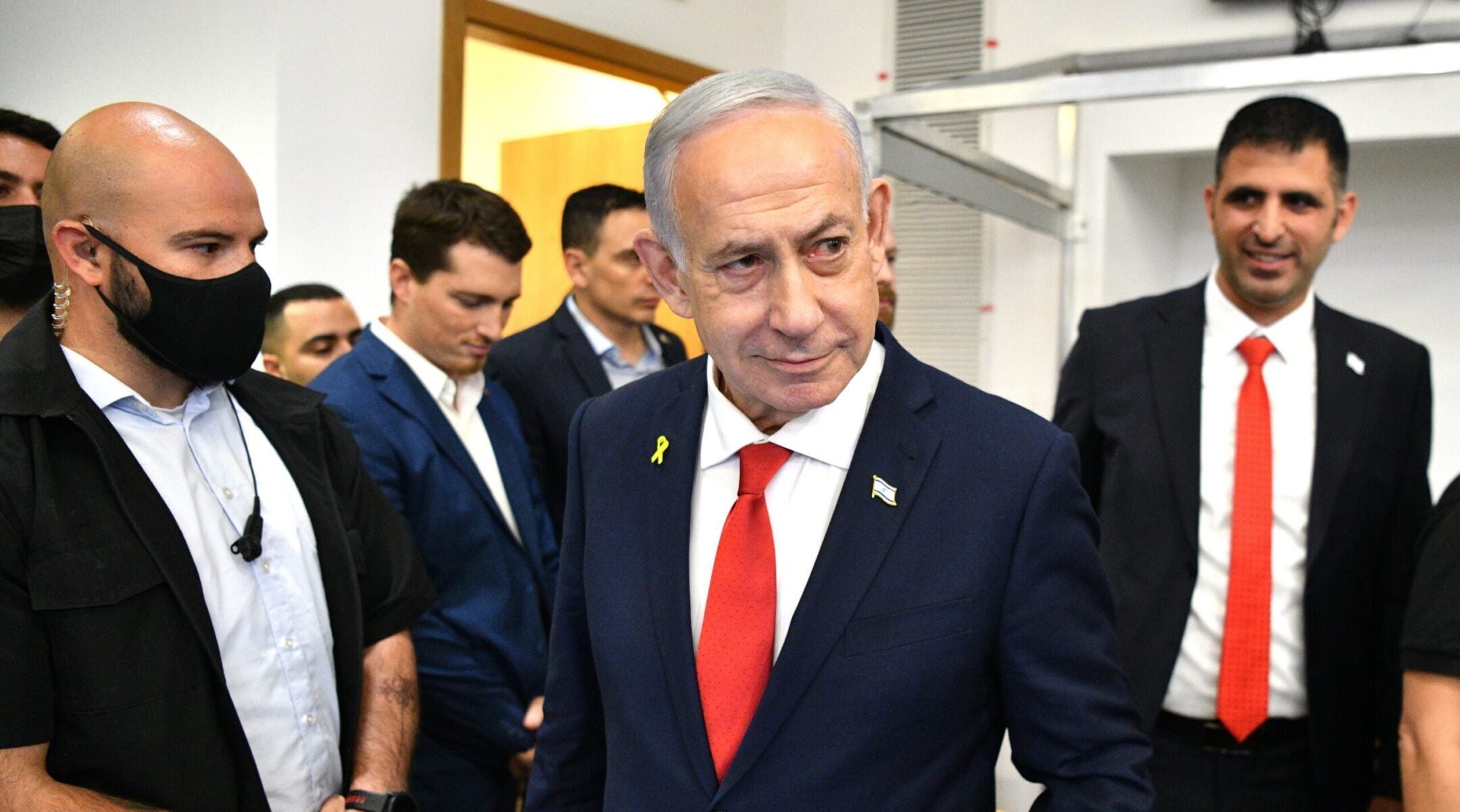President Donald Trump has made official a suggestion that he first issued on the floor of Israel’s parliament: that Prime Minister Benjamin Netanyahu should be pardoned preemptively for his alleged crimes.
Trump made the case in a letter to Israeli President Isaac Herzog that Herzog’s office released on Wednesday. In it, Trump calls Netanyahu a “formidable and decisive War Time Prime Minister” and characterizes his prosecution as “lawfare,” a term that when used pejoratively refers to the misuse of legal systems to achieve ideological ends.
“Prime Minister Netanyahu has stood tall for Israel in the face of strong adversaries and long odds, and his attention cannot be unnecessarily diverted,” Trump writes.
He adds, “While I absolutely respect the independence of the Israeli Justice System and its requirements, I believe that this case against Bibi, who has fought alongside me for a long time, including against the very top adversary of Israel, Iran, is a political unjustified prosecution.”
The letter represents the kind of insertion into Israeli domestic politics that would have drawn ire in the past but have become relatively commonplace during Trump’s norm-busting second term. It follows Trump’s successful push for Israel to strike a ceasefire deal with Hamas that freed the Israeli hostages and suspended the two-year war in Gaza, and comes as Trump is seeking to safeguard the peace. Trump says in the letter that Netanyahu’s leadership is essential for allowing Israel to move forward.
“Now that we have achieved these unprecedented successes, and are keeping Hamas in check, it is time to let be reunite Israel by pardoning him and ending this lawfare, once and for all,” Trump concludes, ending with one of his signature signoffs. “Thank you for your attention to this matter.”
Unlike in the United States, where Trump has pardoned a number of political allies, including this week, Israel does not typically grant preemptive pardons. Netanyahu has not been convicted of any crimes.
Netanyahu has three legal cases open against him, on charges of fraud, bribery and breach of trust. They relate to allegations that he accepted lavish gifts in exchange for political favors and that he used his position to secure positive media coverage. The trial in the cases began in 2020 and has proceeded in fits and starts, with hearings routinely canceled as Netanyahu attends to Israel’s affairs, including the multi-front war and a protest movement that Netanyahu and his allies allege has been stoked through foreign interference.
Yair Lapid, the leader of the opposition, dismissed both the prospect of a pardon and Trump’s letter. On X, he said that Israeli law required those receiving pardons to admit guilt and show remorse — neither of which Netanyahu has yet done. In the Knesset, he said, “We are a sovereign state. There is a limit to intervention.”
Herzog’s office issued a statement praising Trump’s efforts in the Middle East but emphasizing that requests for pardons must come through Israel’s official process, which requires that people directly implicated in the case, or their immediate family members, must file a formal request.
“The president holds great respect for President Trump and repeatedly has repeatedly expressed his appreciation for Trump’s unwavering support of Israel and his tremendous contribution to the return of the hostages, the reshaping of the Middle East and Gaza, and the safeguarding of Israel’s security,” the president’s office said in a statement. “Without detracting from the above, as the president has made clear on multiple occasions, anyone seeking a pardon must submit a formal request in accordance with the established procedures.”
Power the news that matters to you. Before 2025 ends, help (JEWISH REVIEW)’s independent, award-winning newsroom document Jewish history in real-time.




